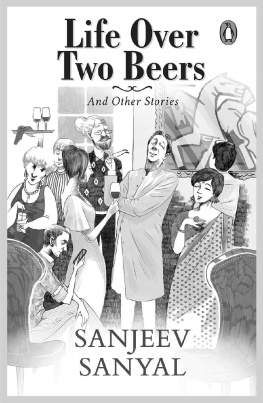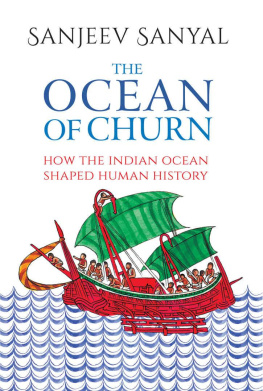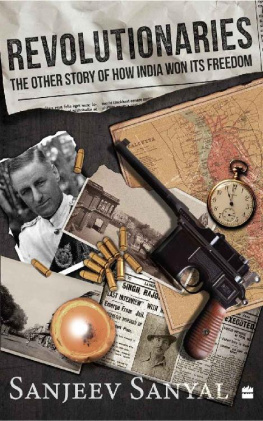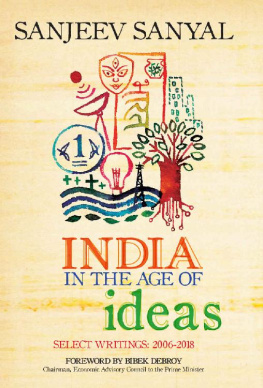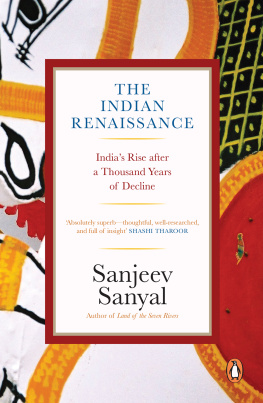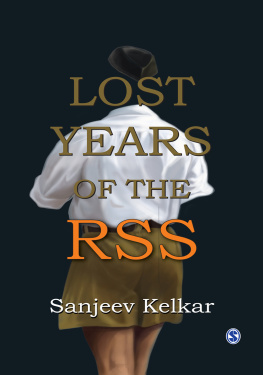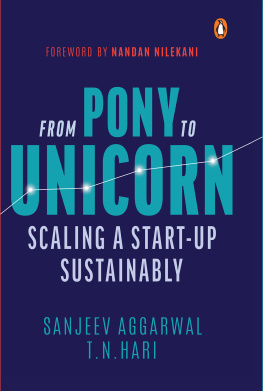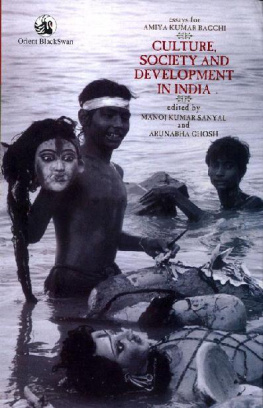SANJEEV SANYAL
Life Over Two Beers
and Other Stories
Contents
PENGUIN BOOKS
LIFE OVER TWO BEERS
Sanjeev Sanyal is an economist, urban theorist and writer. He grew up in Sikkim, Kolkata and Delhi before heading off to Oxford as a Rhodes Scholar. He spent the tumultuous summer of 1993 in South Africa as it transitioned from apartheid, and then extensively travelled through Guatemala as it emerged from civil war. These experiences made him a keen observer of rapidly changing societies, an interest that reflects in many of his varied writings.
Sanjeev spent most of his adult life battling international financial markets, a few years in Mumbai and many in Singapore. One day in 2008, mostly on a whim, he decided to move back to India and travel all over the country with his family. This resulted in his hugely popular second book, Land of the Seven Rivers . Then in 2011, again for no particular reason, he went back to finance and took up a role as the global strategist of one of the worlds largest banks. He also spent the next few years exploring the Indian Ocean rimOman, Sri Lanka, Zanzibar, Vietnam, Indonesia, and up and down Indias coastline. These travels resulted in The Ocean of Churn: How the Indian Ocean Shaped Human History .
Currently Sanjeev lives in New Delhi where he serves as the principal economic adviser to the Indian government.
Advance Praise for the Book
I have been a fan of Sanjeevs non-fiction books for long. But with Life over Two Beers , he has delivered a stellar book in the fiction space as well. A collection of short stories that are bitingly funny, and yet, deeply insightful of the many issues and conundrums that trouble our country today. Sanjeev, in this book, is like a combination of a wry Wodehousian author and a rebellious journalist taking on all the various elites that harass the Indian masses. Do read!Amish Tripathi
Deliciously witty and irreverent stories that are cleverly crafted and force one to turn the pageAshwin Sanghi
Sanjeev is one of the most illuminating and path-breaking writers of our time. His work on history has made waves again and again, and now his fiction is destined to do the same. This sparkling, acerbic fiction debut brings alive every contemporary issue and reveals new layers and complexities in them. There is no detail too small and no cut and thrust too obtuse for Sanjeev. He notices and unfurls them all. Impossible to put down. DelightfulHindol Sengupta
To Shukra, for daring to see the world as it really is
The Used-Car Salesman
R ishi Taneja glanced out over the open terrace from the barsati , his new home. His suitcases stood in the corner, the British Airways luggage tags still sticking out like ears. The room was not large but it was well furnished with everything a bachelor might need, even a small television screwed on to the wall opposite the bed. There was a large doorway that opened on to a terrace and a stairwell that led down to the rest of the three-storey house. Rishi, now in his late thirties, had moved back to India after more than a decade in England.
He had grown up in the small, dusty town of Saharanpur. His father, a widower, owned a small shop in the bazaar selling hardware that just about paid the bills. Rishi, the only son, had shown no inclination to take over the family business. He just could not see himself spending the rest of his life stuck in a nondescript shop selling pipes and paint, sipping endless cups of milky tea and exchanging local gossip with the cloth merchant next door. He wanted to see the world, perhaps make a name for himself. However, Rishis ambitions were not matched by any obvious skill or talent. He had been an indifferent student in an indifferent local college. He had spent his time watching Bollywood films and dreamed of becoming a famous star, but there seemed to be no door that led to any kind of stardom.
After failing to get a suitable job in one of the larger Indian cities, he managed to persuade his father to take a loan and fund him to go to the United Kingdom to study, a one-year course at a lesser-known institution near Reading. The content of the course was immaterial; it was just a ticket to freedom. A neighbours son had taken the same route a few years earlier and now had a comfortable job in Manchester.
The year passed quickly and Rishi finished the course with middling grades. He even managed to get a clerical job in an insurance company in Cowley, Oxford. The job did not pay particularly well, but Rishi saved enough each month to send home money to pay back the loan. For a while it looked like his life was set on rails and it was only a matter of a few years before he gradually rose to office manager. Not quite the life in the spotlight that he had dreamed of, but at least it all looked certain. But two years into the job, things went awry. His father died of a sudden heart attack. Rishi returned home to Saharanpur for a few weeks. He sold off the old family home and the struggling hardware business, settled various debts, and went back to Cowley. He had been promised a promotion within a year but, six months later, he was out of work, his role having been outsourced to Bengaluru.
Now thirty years old, Rishi was in many minds. He looked for jobs all over Britain, but struggled to even get interviewswrong work visa, skill mismatch, recession and so on. He could have gone back to India, perhaps Bengaluru where his old job was now located. But he knew no one in the boom-town and did not relish having to start all over again. He thought of asking a distant cousin who had started a new software venture, but that would have been awkward, a last resort. Besides, he really knew nothing about software.
With his savings eroding quickly, the young man was reduced to doing odd jobs, from shop assistant to courier. It was after a tense year on the edge that he landed a job, quite by chance, at a boutique showroom for used luxury cars. It didnt sound like much, but it was here that Rishi discovered his true calling. Within six months he was selling as many used carsPorsches, BMWs, Bentleys, Rolls-Royces, Ferrarisas his more experienced colleagues. He read up on the brands, their histories, picked up the nuances of different models. He keenly observed the customers who purchased these cars and learned how to impress them and earn their trust. It was not just the horsepower of the car but also the complete feeling of luxury for the upwardly mobile. Soon a clipped upper-class English accent appeared, along with a couple of well-cut suits. Rishi learned to speak knowledgeably about expensive wines that he had never sipped. He visited the grand galleries in London so that he could casually refer to Monet and Manet.
It was a great act, and Rishi was soon a favourite with a certain fashionable set in Oxfordshire and their glamorous friends in London: hedge-fund manager Jeremy White, design consultant Javed Sammy Isfahani, serial entrepreneur Peter Kowalski to name a few. They had country estates near Oxford and apartments in South Kensington. Rishi bought and sold them luxury cars as they climbed the social ladder. He was making a good living and rented a tiny but trendy apartment in North Oxford. A string of women drifted through his life. He also befriended a couple of research scholars at the university. He would drive them around the Cotswolds in expensive cars that he borrowed for the weekend, and soon he was invited to college dinners and punts on the Cherwell.





